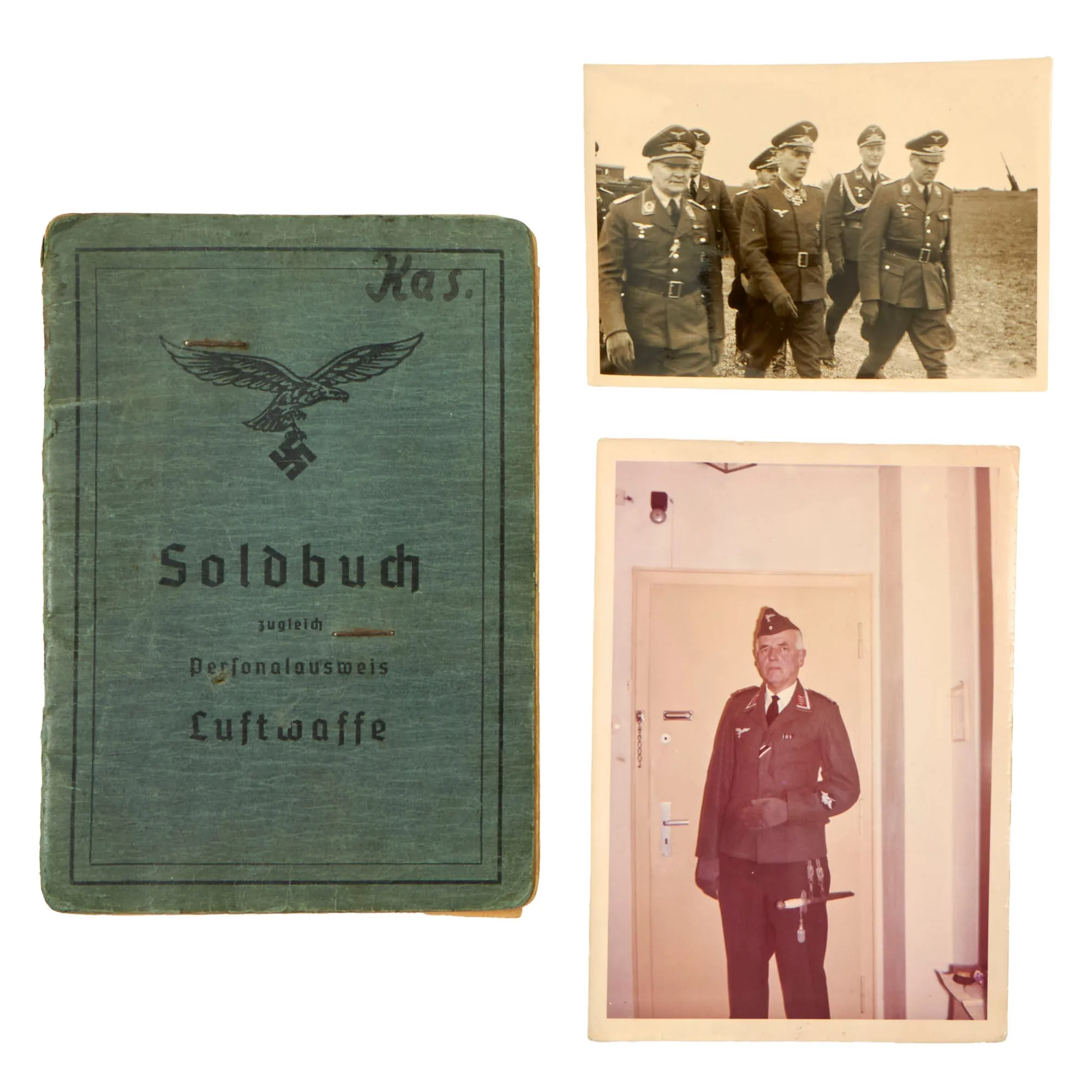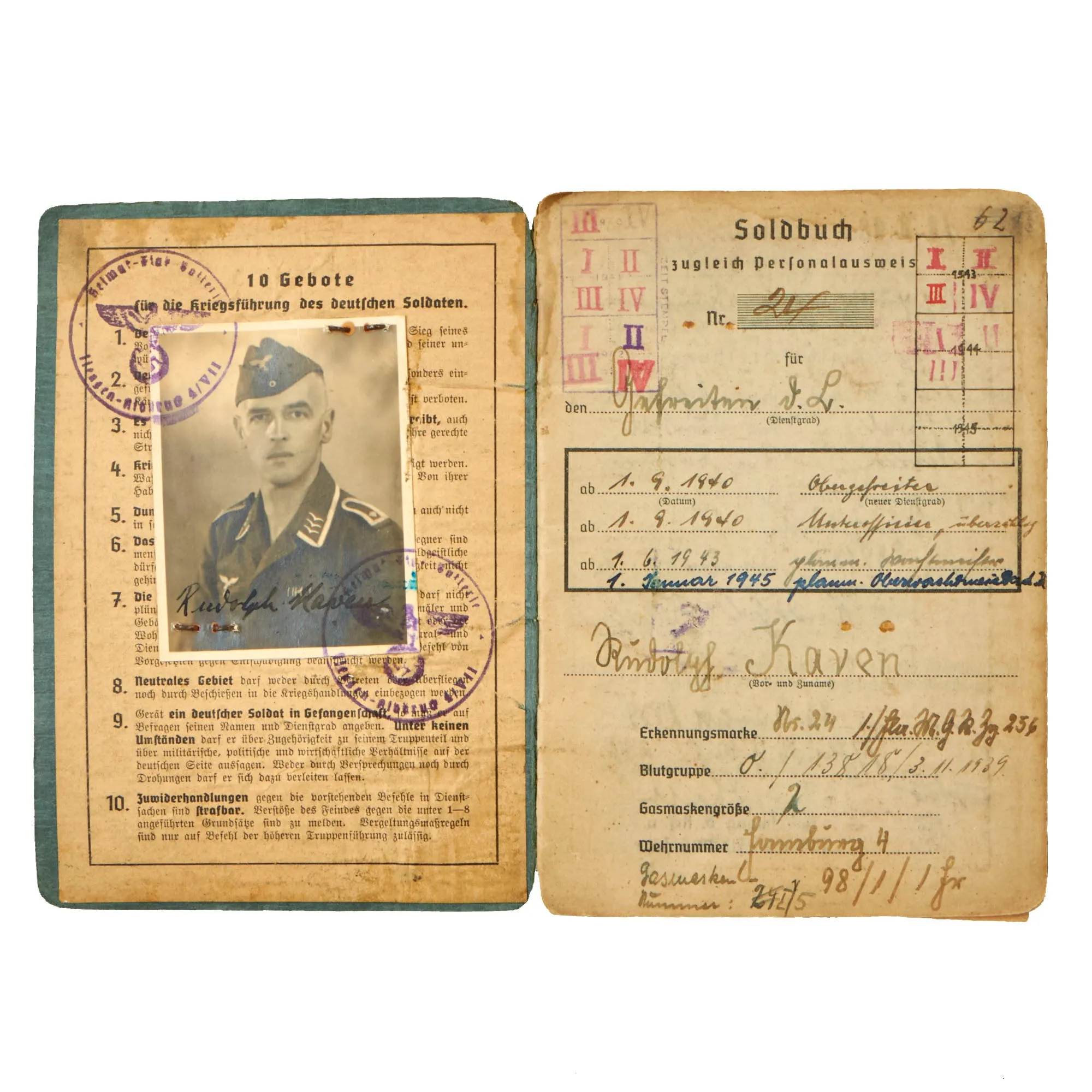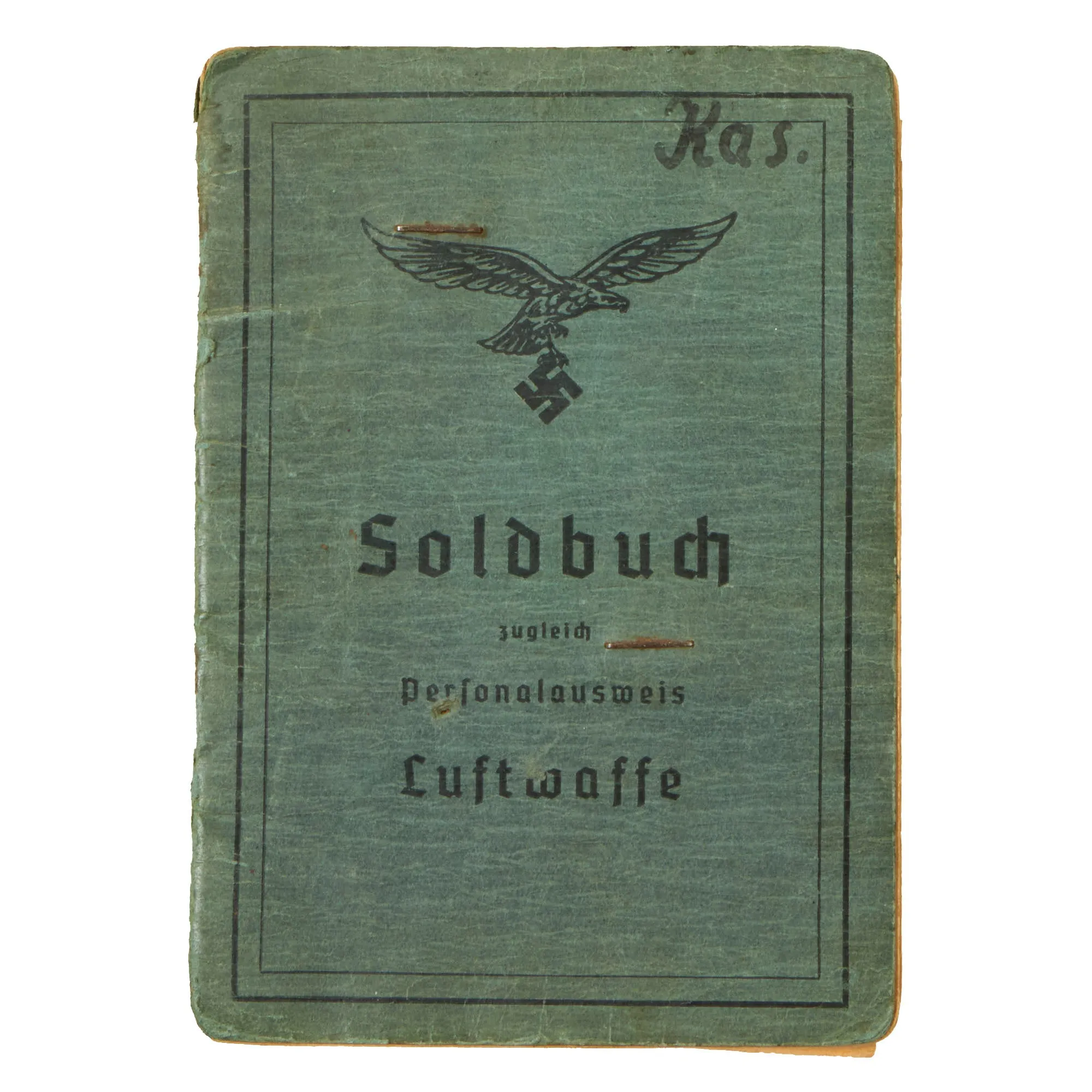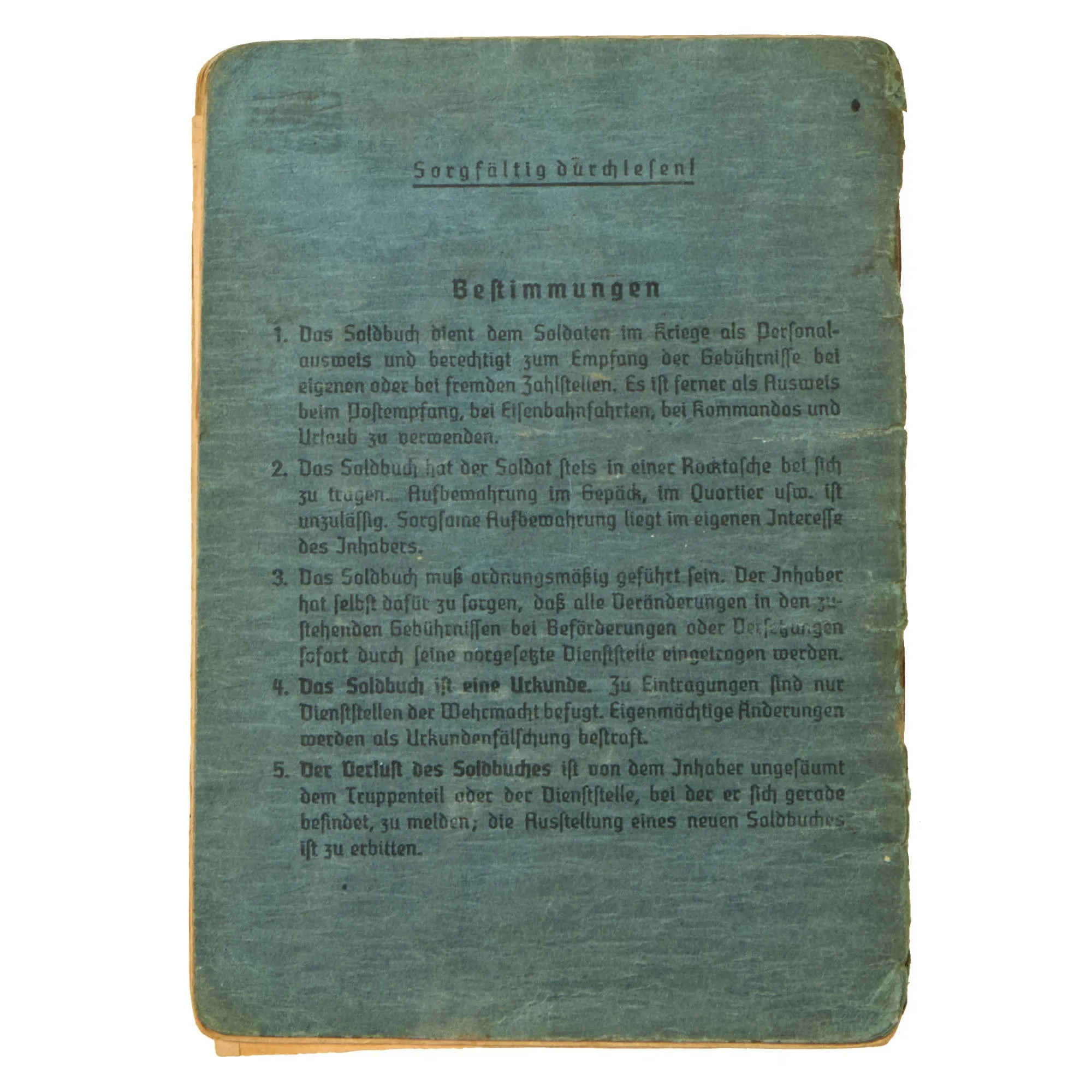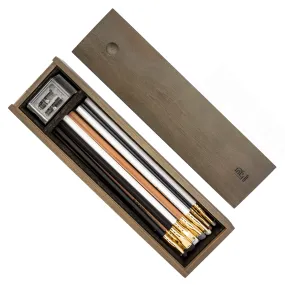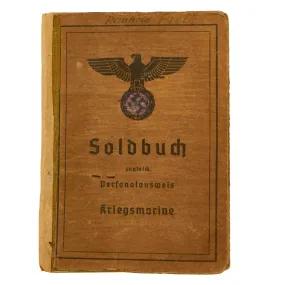Original Item: One-of-a-kind. This is a fantastic genuine WWII German Soldbuch, issued to Rudolph Kaven, a Flak Non-Commissioned Officer in the Luftwaffe during World War II, eventually assigned to 2/Schwerer Flak Abteilung 472.
This is an extensively filed out soldbuch, starting in August 26, 1939 with entries stemming into 1945. On the interior cover is a photograph of Kaven, double stamped and attached with the correct period staples. His Kragenspiegel (collar tab) insignia for are visible, with three "gull wing" insignia and corresponding shoulder boards denoting the rank of Feldwebel. The book shows various promotions between 1940 and 1945. In addition, the book highlights his assignments in various units, and training received. He was trained on various weapons including the K98 Rifle, P-08 Pistol, Panzerfaust 60, Steilhangrenate 24, Eiergrenate 30, MG 08/15, and MP-40. In addition he received training as a chemical weapons NCO, the 2cm Flak Gun, 4cm Bofors, etc. The book also is extensively filled out with his inoculations, clothing issues, gas mask issuance, pay received, and so forth.
In addition, a photograph of Kaven is included with the Sldbuch dating from 1972, showing Kaven as an elderly man wearing his wartime uniform! Quite the fantastic addition to a Soldbuch which comprehensively covers his almost six years of service during the Second World War!
The Soldbuch is in fantastic shape overall and provides for a great deal of research into the officer’s service during World War II. Comes ready for further research and display.
Of note: the persons filling out the book and the service record wrote using Kurrentschrift, an older form of Germanic script writing, which is why the all the "u" letters are written as "ŭ". In this script the lowercase "n" and "u" are identical, so the latter gets the arc shaped mark over it. This is not indicative of an umlaut or other diacritical marking.
More on the German Soldbuch:
The Soldbuch served the soldier as a personal identification document in wartime and as an authorization to receive pay from his own or outside pay-stations. In addition, it was identification for rail travel, detached service, leave, and for receiving mail. The Soldbuch was always carried by the soldier on his person in a tunic pocket. Leaving the book in one's baggage or in one's quarters was not permitted. The careful preservation of the book was in the best interest of the owner. The Soldbuch had to be kept in an orderly fashion. The owner must see to it, that all changes in pay due to transfer or promotion are immediately entered by his responsible duty station. The Soldbuch was an official document. Entries were only to be made by a Wehrmacht duty station. Making unauthorized changes is punishable as falsification of official documents. The loss of a Soldbuch was to be reported as soon the loss is discovered to the holders unit or duty station, and the issue of a new Soldbuch will be requested.

